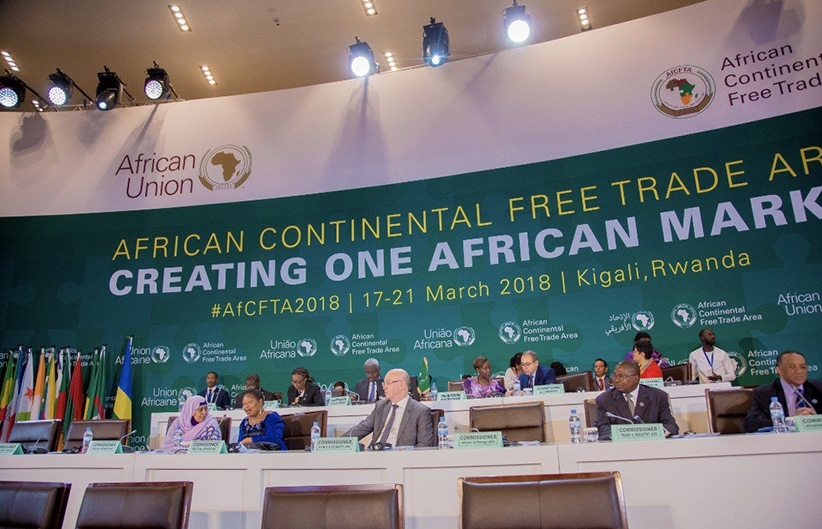Introduction:

Image: www.thesouthafrican.com
Africa is poised for an unprecedented economic transformation with the implementation of the African Continental Free Trade Agreement (AfCFTA). This groundbreaking initiative has the potential to reshape the continent’s economic landscape, creating countless opportunities for businesses, consumers, and nations alike. In this comprehensive guide, we will delve into the intricacies of the AfCFTA, examining its history, objectives, challenges, and the profound impact it is set to have on Africa’s future.
Understanding the AfCFTA: A Historic Endeavor
The AfCFTA is an ambitious agreement that aims to create a single, unified market across the African continent. Negotiated and signed by 54 African countries, it represents a milestone in the continent’s pursuit of economic integration. The agreement seeks to remove trade barriers, including tariffs and quotas, while promoting the free flow of goods, services, capital, and people within the continent.
Benefits and Challenges: Embracing the Future
The implementation of the AfCFTA presents a multitude of benefits for Africa. By reducing trade costs and eliminating non-tariff barriers, it is expected to boost intra-African trade, increase investment, and accelerate industrialization. These benefits have the potential to create jobs, reduce poverty, and improve living standards across the continent.
However, the realization of these benefits is not without its challenges. Infrastructure gaps, lack of adequate financing, and differing regulatory frameworks pose potential roadblocks to the effective implementation of the AfCFTA. Addressing these challenges will require collaboration and commitment from African governments and stakeholders.
Empowering Businesses: A Catalyst for Growth
The AfCFTA is a catalyst for business growth and innovation. It provides African businesses with access to a vast market of over 1.3 billion people, creating opportunities for expansion, diversification, and increased competitiveness. Small and medium-sized enterprises (SMEs) are particularly poised to benefit from the agreement, as it offers them a platform to tap into new markets and scale their operations.
Integrating Value Chains: Moving Towards Interdependence
One of the key objectives of the AfCFTA is to promote regional value chains. By allowing goods and services to flow freely across borders, the agreement fosters the development of specialized industries and encourages cooperation between African countries. This interdependence has the potential to drive economic growth and create sustainable jobs throughout the continent.
Beyond Trade: Nurturing Cooperation
The AfCFTA is not merely an economic agreement; it is a testament to the growing unity and cooperation among African nations. By promoting trade and investment, the agreement fosters dialogue, strengthens diplomatic ties, and contributes to the overall development of the continent.
A Call to Action: Realizing the Potential
The successful implementation of the AfCFTA requires the collective efforts of all stakeholders. Governments must create enabling environments, businesses must seize the opportunities presented by the agreement, and citizens must embrace the benefits it offers. By working together, we can harness the transformative power of the AfCFTA to build a more prosperous and united Africa.
Conclusion:
The AfCFTA is a game-changer for Africa, presenting a roadmap towards economic growth, integration, and self-sufficiency. While challenges remain, the benefits and potential are undeniable. By embracing collaboration, removing barriers, and nurturing cooperation, we can unlock the true potential of the African continent and create a brighter future for all its people. Let us embrace the AfCFTA as a catalyst for economic empowerment, sustainable development, and a more prosperous Africa.

Image: www.oyibosonline.com
Africa Free Trade Agreement News Operation






